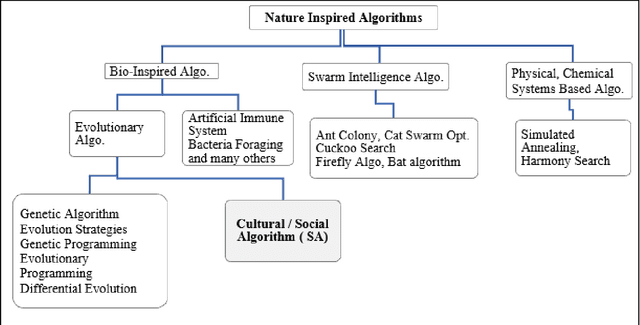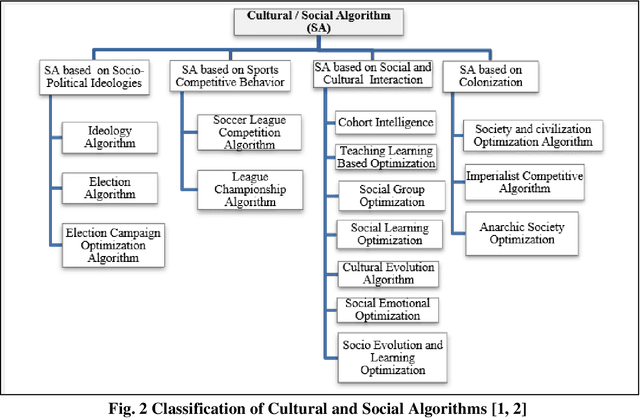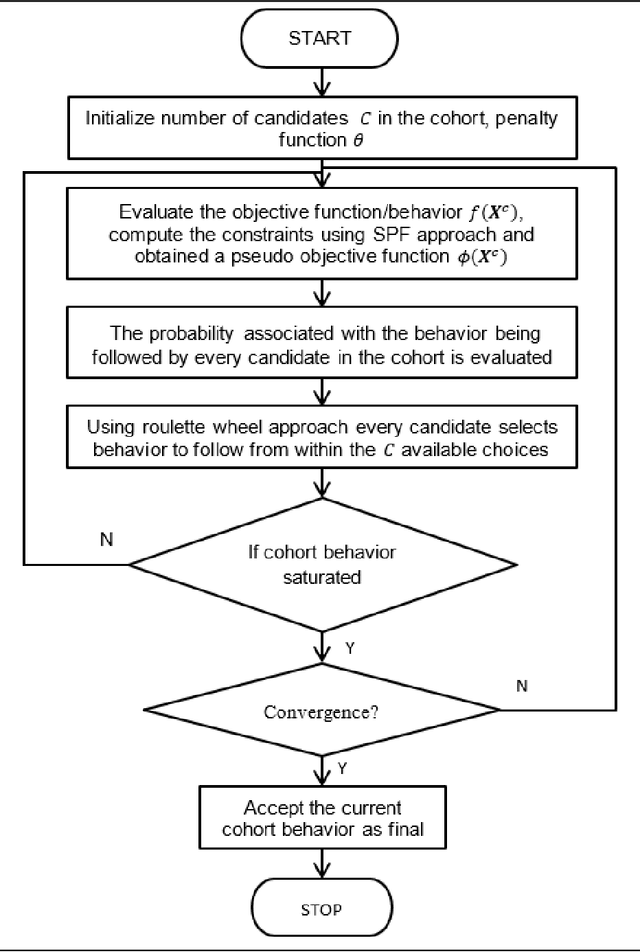Ishaan Kale
Modified LAB Algorithm with Clustering-based Search Space Reduction Method for solving Engineering Design Problems
Oct 04, 2023



Abstract:A modified LAB algorithm is introduced in this paper. It builds upon the original LAB algorithm (Reddy et al. 2023), which is a socio-inspired algorithm that models competitive and learning behaviours within a group, establishing hierarchical roles. The proposed algorithm incorporates the roulette wheel approach and a reduction factor introducing inter-group competition and iteratively narrowing down the sample space. The algorithm is validated by solving the benchmark test problems from CEC 2005 and CEC 2017. The solutions are validated using standard statistical tests such as two-sided and pairwise signed rank Wilcoxon test and Friedman rank test. The algorithm exhibited improved and superior robustness as well as search space exploration capabilities. Furthermore, a Clustering-Based Search Space Reduction (C-SSR) method is proposed, making the algorithm capable to solve constrained problems. The C-SSR method enables the algorithm to identify clusters of feasible regions, satisfying the constraints and contributing to achieve the optimal solution. This method demonstrates its effectiveness as a potential alternative to traditional constraint handling techniques. The results obtained using the Modified LAB algorithm are then compared with those achieved by other recent metaheuristic algorithms.
Biblio-Analysis of Cohort Intelligence (CI) Algorithm and its allied applications from Scopus and Web of Science Perspective
Sep 07, 2022



Abstract:Cohort Intelligence or CI is one of its kind of novel optimization algorithm. Since its inception, in a very short span it is applied successfully in various domains and its results are observed to be effectual in contrast to algorithm of its kind. Till date, there is no such type of bibliometric analysis carried out on CI and its related applications. So, this research paper in a way will be an ice breaker for those who want to take up CI to a new level. In this research papers, CI publications available in Scopus are analyzed through graphs, networked diagrams about authors, source titles, keywords over the years, journals over the time. In a way this bibliometric paper showcase CI, its applications and detail outs systematic review in terms its bibliometric details.
 Add to Chrome
Add to Chrome Add to Firefox
Add to Firefox Add to Edge
Add to Edge